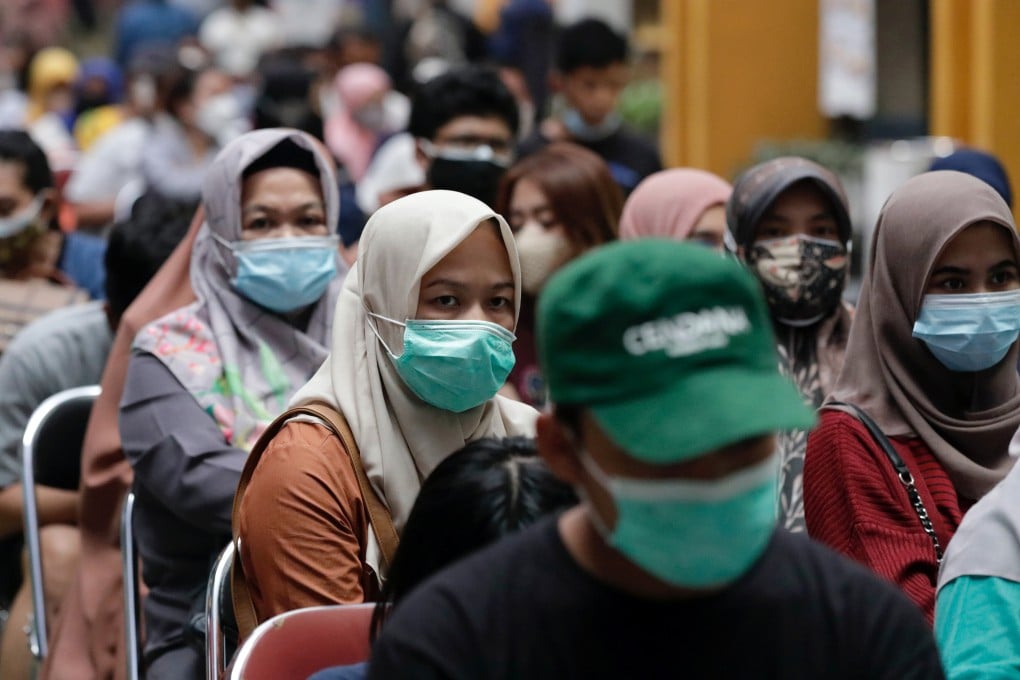Hong Kong’s Indonesian workers fear data security, fake vaccination record scandals will fuel distrust at the border
- The e-HAC app exposed the data of 1.3 million users, while President Joko Widodo’s jab record was also leaked, amid calls for better data protection laws
- As forged jab certificates spread, workers hoping to enter Hong Kong, South Korea and Japan are concerned about distrust in the vaccination programme

With Hong Kong, South Korea and Japan now allowing entry to domestic helpers vaccinated in Indonesia, recent scandals over data security and forged vaccine certificates in the Southeast Asian nation could potentially hamper the placement of migrant workers already suffering from months of pandemic-induced border closures.
“[The proliferation] of fake vaccine certificates in Indonesia would cause distrust towards Indonesian migrant workers’ [proof of vaccination]. This is [our] concern,” said Eni Lestari, spokeswoman for the Asian Migrants Coordinating Body in Hong Kong.
“Even without the [cases of] fake vaccine certificates, the Hong Kong government does not really trust the vaccination records issued in the Philippines and Indonesia,” she said.
The distrust in Indonesia’s vaccination programme is not only an issue for those seeking to work abroad, but has also created a headache for the government.
It recently emerged that e-HAC, the country’s now-defunct test-and-trace mobile app for travellers, exposed the data of 1.3 million users because it lacked proper data privacy protocols.